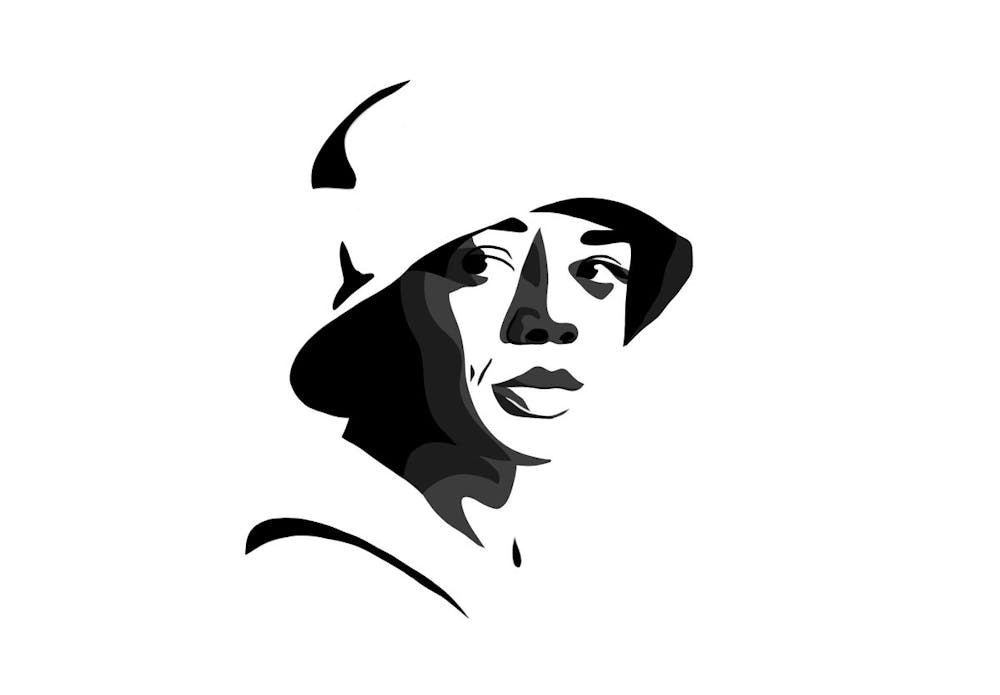“Passing” is a take on Nella Larsen’s 1929 novel of the same name. It tells the story of two old friends — Irene Redfield, played by Tessa Thompson, and Clare Bellew, played by Ruth Negga — whose lives become intertwined again after a chance encounter at a hotel. Irene, who is light-skinned, lives her life as a Black woman, occasionally passing as a white woman to partake in mundane tasks like buying toys for her two Black sons. Clare, who is also light-skinned, lives her life as a white woman and even marries a white man.
The film serves as the directorial debut for Rebecca Hall. Hall’s subtle directorial style and the black and white treatment of “Passing” help to create a sense of dichotomy and polarization amongst the film’s main themes — race, gender and sexuality. By having the film done in black and white, Hall cleverly plays with the lighting in a way that allows the film to emphasize the Blackness or whiteness of Clare and Irene, even though both actresses are light-skinned Black women.
Both the novel and the film for “Passing'' subvert the idea that whiteness is ideal when compared to Blackness — particularly with the character Clare. Despite choosing to live her life passing as a white woman, it becomes clear throughout the film that she has an intense longing to regain a connection to her Blackness that she previously shunned. This longing verges on an obsession that is demonstrated by Clare’s presence in Irene’s life — she develops a relationship with Irene’s children, maid and husband that, at times, seems stronger than Irene’s own relationships with these people. At one point Irene asks what Clare will do if her husband discovers she is actually a Black woman. Clare responds, “I’d do what I want more than anything right now. I’d come up here to live. In Harlem. With you.”
The film further complicates this obsession by showing it from Irene’s perspective as well. While Clare desires Irene’s life and connection with the Black community, the grass is not always greener. Irene’s home life is marked by a distant relationship with her husband, Brian, and struggling with if and how to unveil the cruelties of being Black in America to her two sons.
The film’s treatment of Clare’s obsession with Brian and Irene is contrasted with Hall’s subdued directorial approach when compared to the intensity of the emotions characters feel. A large portion of the scenes in the film are long-lasting shots that focus on a character’s face or a singular object. The scenes are often void of background noise or filled by a soft jazz accompaniment or light background characters. For instance, when traveling to a party together, Irene feels excluded in her interactions with Brian and Clare. To capture this emotion that carries over to the party, Hall utilizes a wide angle slow zoom on Irene sitting alone on a large couth that reveals her tension and discomfort.
While Hall’s muted approach to the film makes for beautifully shot cinematography, it does not necessarily work well for “Passing,” particularly because the work is not plot-driven. This directorial choice creates a sort of tension within the film without any sense of legitimate conflict or resolution. Even in some of the film’s most intense moments, such as when Irene confronts Brian for having feelings for Clare, there is an anticlimactic feel to them. It is as if the audience is waiting for a bomb to blow, but whenever the timer is nearing the end of its countdown, it is suddenly diffused.
The film may lack a sense of explosive conflict, but “Passing” still remains a poetic exploration of race. It shows the dangers that come from desiring and mimicking whiteness. Clare may pass for white and this provides her some security in wealth and prestige in life. However, in the end, whiteness cannot bring her happiness. She spends the entire film longing to reconnect with her Blackness — no benefits that come from passing can fill the void that comes with having a sense of belonging in one’s community.







